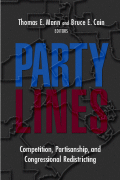Even as President George W. Bush outlines his domestic agenda for a second term, he is ending his first term with one of the smallest domestic agendas in recent history. Compared to the eight presidents who preceded him, Bush ranks ninth, or last, in the number of major legislative proposals on his domestic agenda. Past experience suggests that his second-term agenda would be even smaller.
These and other findings come from a detailed assessment of domestic agendas dating back to 1961. A given proposal such as Medicare, tax cuts, or social security reform was counted as part of a president’s agenda if it meets three criteria. First, the proposal must have been mentioned in a State of the Union address (or, in Nixon and Carter’s case, a detailed first-year legislative message), which signals a presidential embrace. Second, the proposal must have been converted into a serious legislative proposal, which signals its significance as a substantive, not symbolic idea. Third, the proposal must have been covered by the Congressional Quarterly coverage as major legislation, which distinguishes it from the typical “laundry-list” of less significant initiatives that appear on the agenda from time to time.
Defined by these three criteria, the president’s agenda is best viewed as a list of hopes for the future, some of which become law, others of which languish for a lack of support. Presidents rarely get everything they ask for, of course, but they can always dream.
(This fact sheet builds on my prior research on the president’s agenda published in The President’s Agenda: Domestic Policy Choice from Kennedy to Carter (Johns Hopkins, first edition, 1984), and The President’s Agenda: Domestic Policy Choice from Kennedy to Clinton (Johns Hopkins Press, second edition, 1999). The methodology used to assess the George W. Bush agenda is the same used in both earlier efforts. Readers are forewarned that the tabulations reflect my own judgments regarding the items on the agenda, and the relative size and scope of each individual proposal.)







